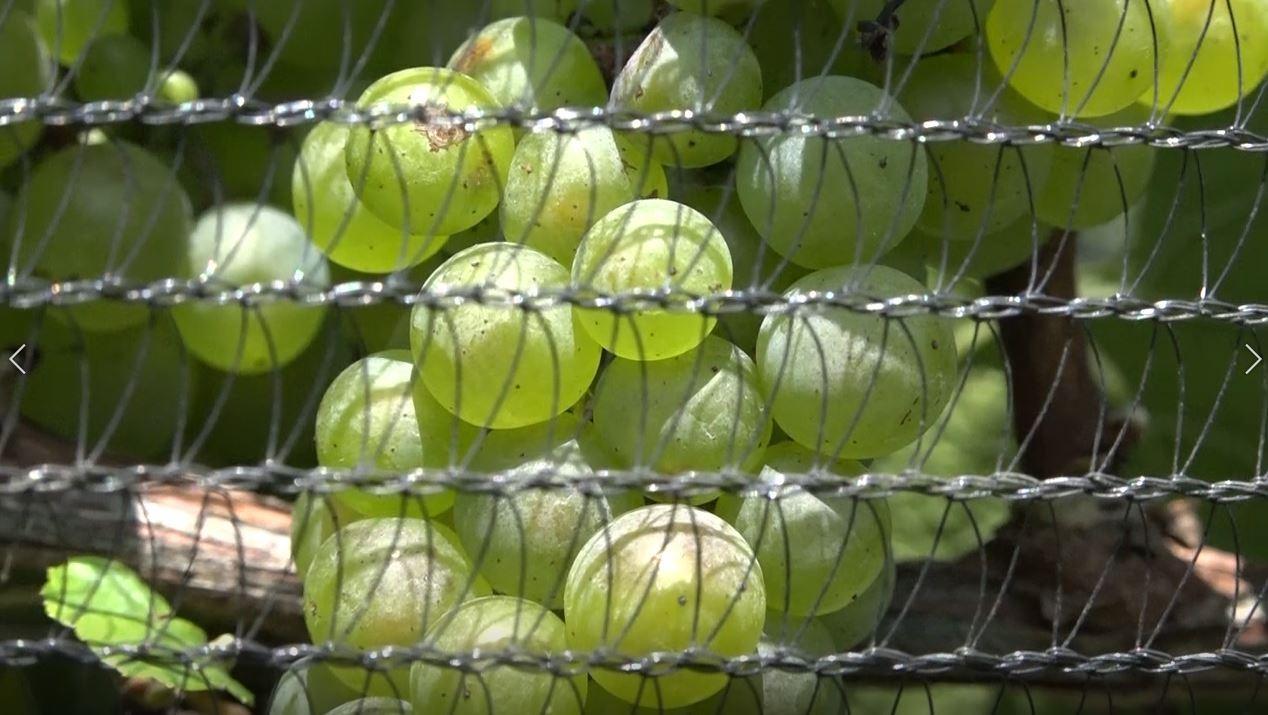FORT WASHINGTON, Pa. (WLVT) – Drivers often pass an unassuming sign on E. Skippack Pike marking the entrance to “Karamoor Farm.” Most have no idea what lies beyond the fence. But now the operators of
Karamoor Estate Vineyard and Winery are preparing to invite the public inside.
Karamoor Estate is a sprawling 250-acre property that has been farmland since colonial times. It’s now one of only a handful of
Pennsylvania estate vineyards that make wine using only their own grapes.
“We grow Malbec, Merlot, Cabernet Sauvignon, Cabernet Franc and Petit Verdot,” said Cheri Morrison, the estate’s director of marketing, sales and events. “And four white [wines]: We grow Chardonnay, Sauvignon Blanc, Viognier and Pinot Gris.”
“They’re more fickle than, say, the American hybrids that are predominantly grown here,” said Kevin Robinson, the estate’s winemaker.
Philanthropists Nicholas and Athena Karabots bought land in the 1970s and turned it into a vineyard in the early 2000s. The vines now fill 27 acres and produce award-winning wines. However, growing European
Vinifera grape varieties in Pennsylvania comes with challenges.
“Right now all the vineyards are struggling with the spotted lanternfly,” Morrison said.
Bugs and birds damage the crops, while the climate poses another threat.
“Obviously we are not the same weather conditions that we have in California,” Morrison said.
Some grapes don’t grow well through our hot, humid summers, so Karamoor has some strategies to help the plants out. Vertical shoot positioning allows better air flow through the vines, to prevent mold. Karamoor also plants their rows north to south so the vines get sunlight all day long.
The winery also features a lot of attention to detail. Wine is aged in wood barrels until it has the right flavor profile.
“So we have a combination of French oak, Hungarian Oak and American oak here. That’s what we use,” Robinson said. “The French-Hungarian hybrid is what we call it, is a French oak body with a Hungarian head.
“We get a different characteristic of the flavors that come from that—the vanilla from the French and the spicy cinnamon and clove from the Hungarian. I like a little bit of American in our blends, in our red blends. It’s equivalent to a spice rack, a little bit of this, a little bit of that. And over the years I’ve found the levels of each that I like.”
Climate isn’t the only hurdle to making wine in Pennsylvania; critics say Pennsylvania’s liquor laws are the most arcane and confusing in the country.
“Pennsylvania liquor laws…. Are a whole different animal,” Morrison said.
A
Legal Advisory Opinion released by a Pennsylvania judge this month banned wineries from promoting percentage discounts—like 25 percent off a case of Merlot. But it’s okay to sell that case for the same lower price, as long as they don’t advertise the discount. In other words, the
same ultimate discount can be legal so long as you advertise your discounts as fixed prices instead of percentage discounts.That’s just one example of how vineyards and wineries have to navigate the PA Liquor Code. And the rules are constantly changing. A law passed in 2016 allowed
grocery stores to sell wine for the first time. Karamoor operators cheer the new laws expanding the number of places they can sell.
“Actually they’ve improved a lot over the last few years,” Morrison said.
But the laws still leave much to be desired.
“To sell through the state stores we have to jump through all their hoops,” Robinson said.
Pennsylvania wineries can currently sell directly to Pennsylvania restaurants, but if they want to sell product outside the state, they need to go through a distributor that often charge a hefty fee.
“It would be nice if we were able to sell direct outside of Pennsylvania,” Morrison said.
Despite the challenges, Karamoor is growing, by selling wine to more local restaurants and breweries. And they want even more people to know about them.
“We’re a hidden secret. People have no idea that this fabulous property is right here in Fort Washington,” Morrison said.
“These are really good wines,” Robinson said.
So they’re expanding tours beyond private tastings. They’re planting new vineyard through which visitors will be able to walk. Construction has also begun on a new wine-tasting room, which is set to open by early 2020.



